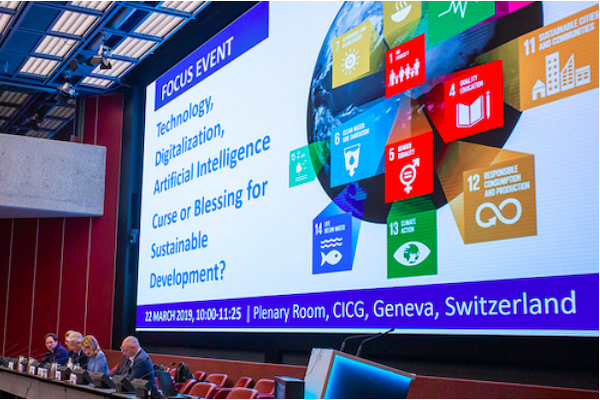Dear all,
My name is Ena Peeva, I’m a co-founder of Eduactive, social enterprise with legal office in Italy, working with young people in Latin America, Africa and the Balkan Area. Eduactive is entirely led by people under 30, and we are working on providing quality education and facilitate the entrance to job market of young people, through concrete interventions, that also include technology, digitalisation and artificial intelligence. When we decided to found Eduactive, year and a half ago, we were driven by what is in core of the Agenda 2030, the 17th Sustainable Development Goals. The role of youth in the Agenda 2030 is essential, so they can trigger for all actors to approach a 3D sustainable development- environmental, social and economic-that will eventually integrate into a universal and visionary action plan for global cooperation on the SDGs.
Today, I am here to speak as a representative of civil society, as part of the UN ECE Regional CSO Engagement Mechanism and to share the main message on the issue on stake, raised during the CSO pre-meeting.
Technology, digitalisation and artificial intelligence are not only transforming the sustainable development, but they are transforming our everyday life. During these two days in Geneva, I have rented a flat from a company that does not own flats and I have used transport services from a company that does not own any cars, nor give any direct employment and decent work conditions to the drivers. This is the direct influence of technology and digitalisation on our everyday lives in the developed World, but are we actually ensuring that this unprecedented technological transformation, is in reality not only widening the gap between the “haves” and the “have-nots” and fuelling even greater inequalities both between and within countries?
Recalling the statement of my colleague during the opening session, we urge governments to create such policies that will boost the use of technology toward sustainable development, but at the same time will ensure that no one is left behind. Even more important, we urge the private sector, SME and big corporations, to engage actively by helping the least advantaged to be able to act through technology and not create even wider digital division.
Original article on EDUACTIVE
